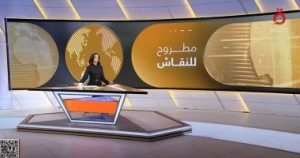Dr. Ahmed Qassoum, Professor of Computer Science, told “Echorouk” that the features of the peer-to-peer “sharing” economy in Algeria appear on some digital platforms, explaining that the country is awaiting the integration of such platforms into the official economy and assessing their effectiveness.
Qassoum confirmed that the peer-to-peer economy, leveraging artificial intelligence, offers profit opportunities at lower costs, ensures consumer protection, and allows owners of a house, property, or even a single car to share its use with others and earn money. Similarly, a single office can be used by several companies, opening the door to utilizing assets that might otherwise remain idle.
The speaker sees the importance of artificial intelligence in the peer-to-peer economy as enhancing trust, social interaction, and environmental safety. For example, using one car instead of multiple cars reduces fuel consumption, combustion, and environmental pollution.
Regarding the challenges Algeria faces in adopting an official peer-to-peer economy supported by artificial intelligence, Dr. Ahmed Qassoum pointed to regulatory barriers related to legal aspects protecting participation in these services, consumer protection limits if dissatisfied with a service or product, and defining responsibility for specific services.
He also mentioned issues related to electronic payments, taxes, how to integrate some digital platforms into the official economy, the quality of technology and infrastructure in Algeria, and how to strengthen trust regarding quality. Additionally, he highlighted the need to improve logistics operations and storage of materials according to orders and expectations by different people in various regions.
If these challenges are met, Qassoum says that artificial intelligence in the peer-to-peer economy can achieve precise distribution of services and goods, accurate demand forecasting, and improved risk and crisis management related to needs and rising prices of essential goods and foodstuffs in the global market.
He emphasized that artificial intelligence in the economy is a driving force to improve services, protect users, and combat fraud.













Recommended for you
Exhibition City Completes About 80% of Preparations for the Damascus International Fair Launch
Talib Al-Rifai Chronicles Kuwaiti Art Heritage in "Doukhi.. Tasaseem Al-Saba"
Egypt Post: We Have Over 10 Million Customers in Savings Accounts and Offer Daily, Monthly, and Annual Returns
Unified Admission Applications Start Tuesday with 640 Students to be Accepted in Medicine
His Highness Sheikh Isa bin Salman bin Hamad Al Khalifa Receives the United States Ambassador to the Kingdom of Bahrain
Al-Jaghbeer: The Industrial Sector Leads Economic Growth